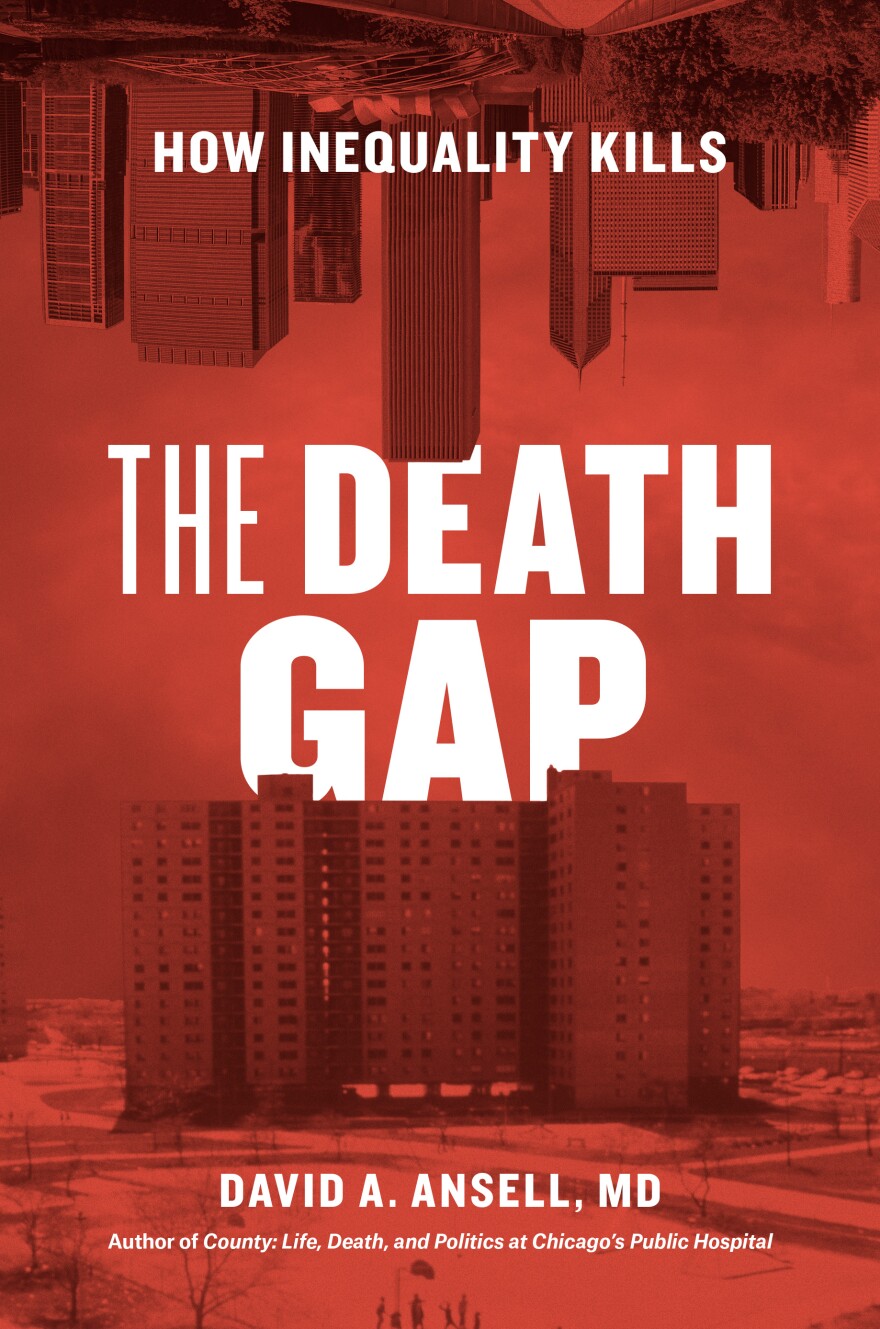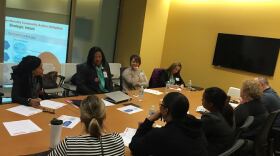None of Dr. David Ansell's patients who needed a transplant ever got one in his 27 years at two of Chicago's safety-net hospitals, yet the patients from the trauma units there, many of them black, he says, provided the organs for the procedures at the wealthier hospitals. Why?
Ansell says the poorer hospitals had no transplant specialists on staff and, even if a referral were to be made, either the specialist didn't accept that type of insurance or the patient was uninsured.
It's these and other inequities that's leading to wide disparities in the health between white and brown people in the U.S., says Ansell, who speaks in Kalamazoo on June 6.
But now, for the first time, it's not just people of color experiencing premature deaths due to what Ansell calls "structural violence" (and "structural racism"). So are white men and women without college degrees, he tells Earlene McMichael of WMUK 102.1 FM in an interview airing today on that NPR station's locally-produced, award-winning public affairs show, WestSouthwest.

"It's gotten to be a national phenomenon, and it's getting a lot of attention because the United States is the only developed country in the world where life expectancy is dropping amidst all this prosperity," says Ansell, who just released "The Death Gap: How Inequality Kills." He is senior vice president for community health equity at Rush University Medical Center in Chicago.
"It's as if we have two countries, a country for those who have more and a very, very different, distressed nation for those who have less. And it's affecting the ability for people to live long and healthy lives."
Six years ago, Ansell authored "County: Life, Death and Politics at Chicago's Public Hospital."
He says the loss of jobs, especially good-paying ones, is leading to growing income disparities across the country. That, he says, is making it hard for people to "lift themselves out." According to Ansell, there are more impoverished neighborhoods today than in the '60s. And childhood poverty is at "astronomical levels," he adds.
What would improve health outcomes for all? Ansell told McMichael that universal healthcare is the answer; other places, like Canada and Costa Rica, that implemented such systems do not see huge variances in the quality of health among their low- and-high-income populations, he says.
Overall in the United States, the life expectancy of African-Americans continues to lag behind whites, but is on the rise, Ansell says.
_________
IF YOU GO
- What: Dr. Ansell delivers a free public address.
- When: 7 p.m., Tuesday, June 6.
- Where: Auditorium, Western Michigan University Homer Stryker M.D. School of Medicine, 300 Portage St. in Kalamazoo.
- For more: Contact WMU's Lewis Walker Institute for the Study of Racial and Ethnic Relations.
- Co-Sponsors: WMU's medical school, Kalamazoo YWCA, ISAAC and Organize West Michigan.





